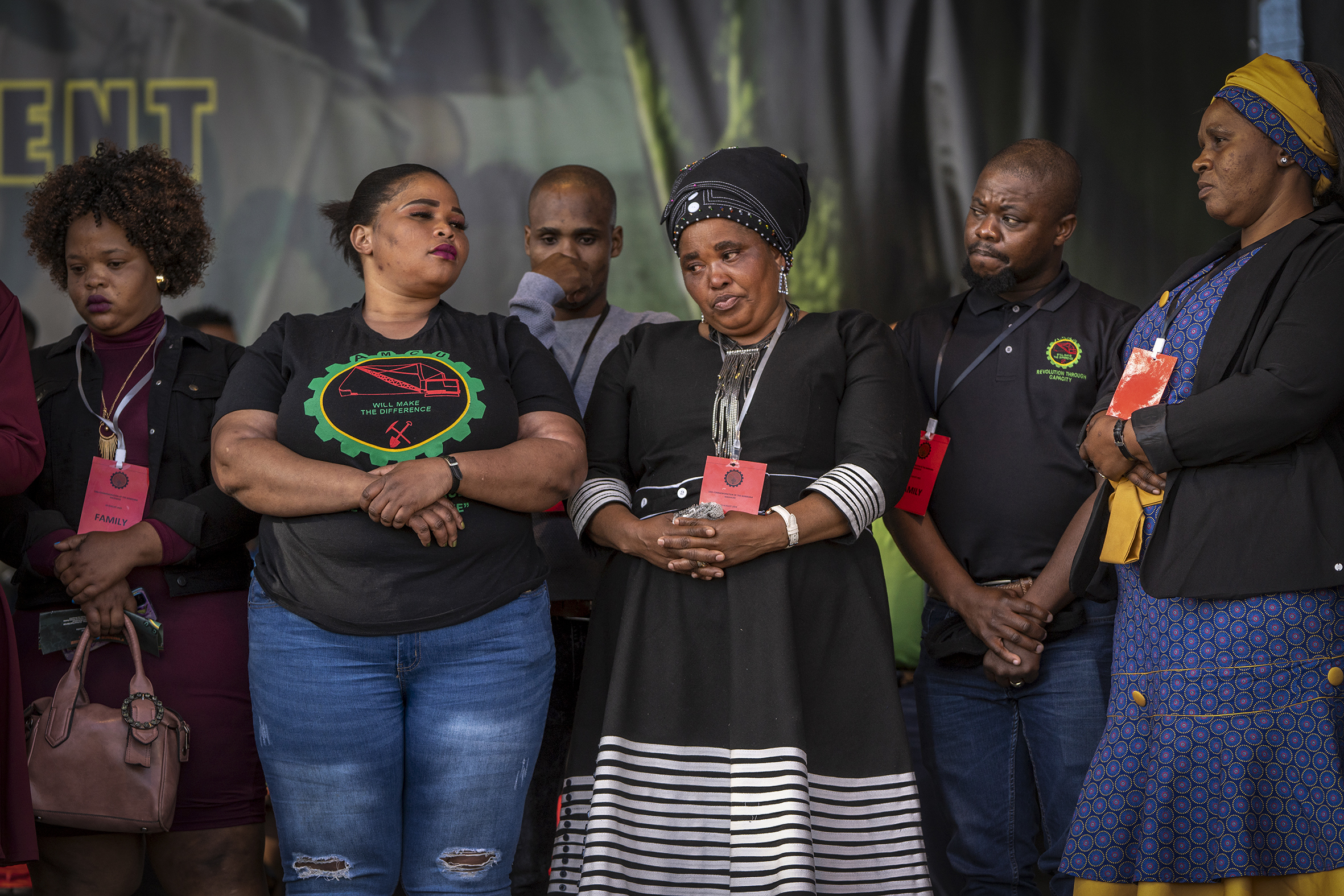Each year on 9 August, the South African government commemorates Women’s Day, honouring the Women’s March of 1956. Last week’s National Women’s Day was no different. In the same month, for nearly 12 years, we have marked the anniversary of the Marikana massacre that to this day significantly affects the women and children of the deceased and injured mineworkers.
The state cannot truly commemorate Women’s Day while the unjust principles against which the women protested in 1956 remain a reality for the women of Marikana.
August 2024 marks 68 years since the Women’s March of 1956. In a masterclass in grassroots organisation, nearly 20,000 women marched to the Union Buildings in Pretoria objecting to the pass laws that limited black women’s freedom of movement, earnings, and inherent human dignity.
Their powerful defiance, of both apartheid laws and the gendered stereotype that women had no place in politics or public life, is commemorated annually.
August 2024 marks 12 years since the Marikana massacre of 2012. Reminiscent of an apartheid onslaught, 44 people were killed (34 on 16 August), 94 were wounded (78 on the 16th), and 275 miners were arrested in a week of violence.
Historically exploitative industry
The mineworkers were protesting for a living wage and better working conditions in a dangerous and historically exploitative industry. Their demand for dignity was met with the most lethal use of force by state police against citizens since the Soweto Uprising of 1976.
The victims of Marikana are not just the murdered, maimed, and imprisoned mineworkers. Hundreds of women – wives, partners, mothers – and their children and other dependants for whom they care have demanded reparations. Twelve years later, the state denies wrongdoing and minimises the disruption and loss it has caused these women.
The stark contrast between the state’s commemoration of Women’s Day and its mistreatment of the women of Marikana reveals its true stance on women’s freedom. To fully appreciate this painful irony requires placing the Women’s March in historical context.
Women organising against the pass laws, beginning already in 1913 in Bloemfontein, was in large part against the disruption to family life caused by these laws. The migrant labour system ripped black men from their families, forcing women to fulfil all household, agricultural and economic needs.
When black women living in the reserves sought proximity to cities to make a living – doing laundry services, domestic work, and other informal work – the colonial government paralysed these efforts through pass laws.
Black poverty
On the surface, the mineworkers of Marikana were demanding better wages and work. But, at its core, the strike was a challenge to the extractive and exploitative nature of the migrant labour system: a system that depends on – and thus perpetuates – black poverty.
The demands sought to loosen the economic strangulation of mine work, so that mineworker’s families – now and in future – could be better cared for, and not be destined to endure the psychological, social, and economic violence of cyclical poverty.
Most families, themselves multi-generational and inclusive of extended family, lost their breadwinner. Several women, now widowed, had to leave their homes and families to take up work at Lonmin plc, now Sibanye-Stillwater (which has since acquired Lonmin plc). Matumelo Mohai (the wife of Telang) and Betty Gadlela (wife of Sitelega) even worked underground for some time before joining other widows as cleaners.
This has caused further disruptions to these families. Several of the deceased’s children now attend boarding schools, funded by Sibanye-Stillwater through a trust.
But Nokuthula Zibambele’s children with the deceased Thobile no longer want to come home to an empty house for their holidays. Nokuthula has since left the mine to care for her children.
The state’s treatment of these women is unacceptable. For the past two years, the state has reminded the public that it has paid more than R71 million to the families for loss of support.
Dependants received nothing
However, it has failed to mention that these families included 315 dependants, of whom 129 — including all 11 family members of the murdered Thobile Mpumza — have received nothing.
Moreover, the state has calculated these losses as purely financial, based on the impoverishing wage the miners protested against. Ishmael Gadlela – the son of Betty and Sitelega – was paid only R2,850 in loss of support as the state’s compensation for the massacre.
Such calculations fail to acknowledge the need for financial reparations that these women and children are owed for the emotional and psychological impact of the massacre, as well as the resultant loss of emotional support, companionship, love, care and protection.
Perhaps most egregiously, the state has refused to tender a formal apology for the massacre and to engage with these women, despite their pleas. Such a denial is both disrespectful and fails to acknowledge their humanity – two foundational principles of patriarchy and gendered oppression.
Duties of child rearing and homemaking have been, and are, disproportionately shouldered by women. The mining industry reinforces these gender roles.
Black women, long before 1956, have undertaken these duties of care with compassion for their families while challenging their subordinate status in a patriarchal society. The Women’s March 68 years ago was the result of oppressive laws that entrenched black women’s poverty.
This year, as the state commemorates the 68th anniversary of the Women’s March and celebrates Women’s Month this August, it should do right by the women who live their lives as if 1956, and 1994, meant nothing.
The state must honour the plight of the women of Marikana by issuing an apology, taking accountability for the disruption and loss it has caused and expediting the finalisation of all outstanding compensatory claims.
Only then can the state commemorate, and the women of Marikana celebrate, Women’s Day. DM
Justin Winchester is a litigation intern, and Grace Gomba a candidate attorney at the Socio-Economic Rights Institute of South Africa (Seri).




